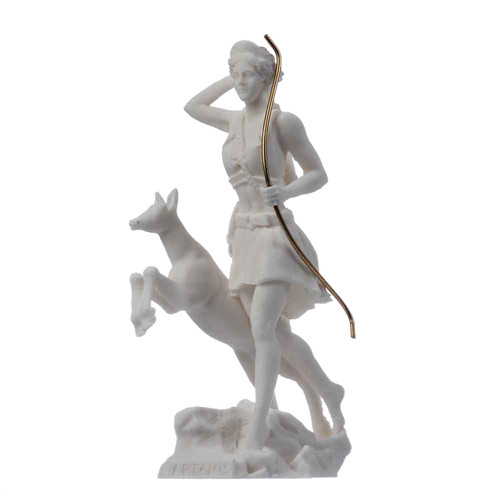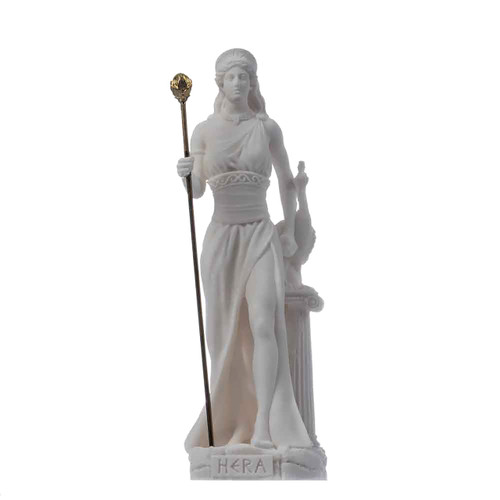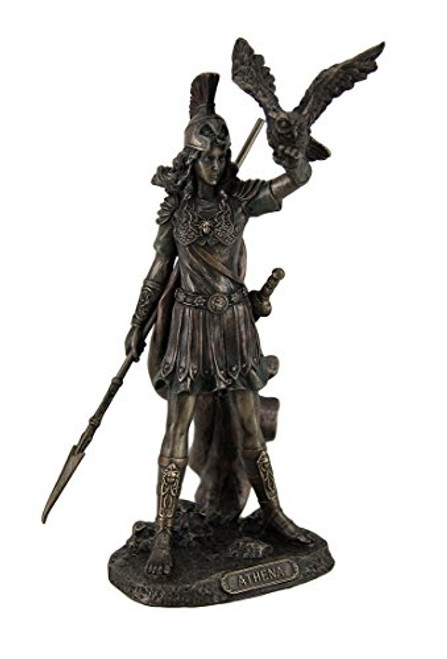Athena With Owl Medusa Shield Greek Goddess Alabaster Statue Gold 6.69" Height: 6.69 inches (17 cm) Width: 2.36 inches (6 cm) Depth: 2.36 inches (6 cm) Weight: 0.423 lbs (192 gr) Mythology Birth Athena is "born" from Zeus's forehead as a result of him having swallowed her mother Metis, as he grasps the clothing of Eileithyia on the right; black-figured amphora, 550525 BC, Louvre. Although Athena appears before Zeus at Knossosin Linear B, as a-ta-na po-ti-ni-ja, "Mistress Athena"in the Classical Olympian pantheon, Athena was remade as the favourite daughter of Zeus, born fully armed from his forehead.The story of her birth comes in several versions.In the version recounted by Hesiod in his Theogony, Zeus lay with Metis, the goddess of crafty thought and wisdom,but he immediately feared the consequences because Gaia and Ouranos had prophesized that Metis would bear children wiser than he himself. In order to prevent this, Zeus swallowed Metis, but it was too late because Metis had already conceived. Eventually Zeus experienced an enormous headache; Prometheus, Hephaestus, Hermes, Ares, or Palaemon (depending on the sources examined) cleaved Zeus head with the double-headed Minoan axe, the labrys. Athena leaped from Zeus's head, fully grown and armed, with a shout"and pealed to the broad sky her clarion cry of war. And Ouranos trembled to hear, and Mother Gaia
" Plato, in the Laws, attributes the cult of Athena to the culture of Crete, introduced, he thought, from Libya during the dawn of Greek culture. Classical myths thereafter note that Hera was so annoyed at Zeus for having produced a child that she conceived and bore Hephaestus by herself, but in Imagines 2. 27 (trans. Fairbanks), the third-century AD Greek rhetorician Philostratus the Elder writes that Hera "rejoices" at Athena's birth "as though Athena were her daughter also.
Athena with Owl Medusa Shield Greek Goddess Alabaster Statue Gold 6.69"
Was:
$131.70
Now:
$65.85
- SKU:
- ZYA746606
- UPC:
- 5212026303323
- Condition:
- New
- Availability:
- Free Shipping from the USA. Estimated 2-4 days delivery.







